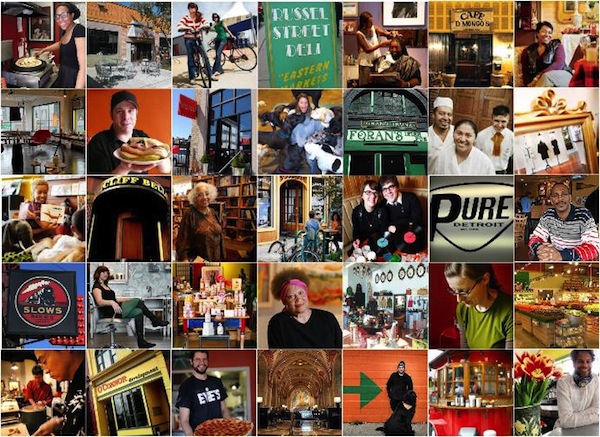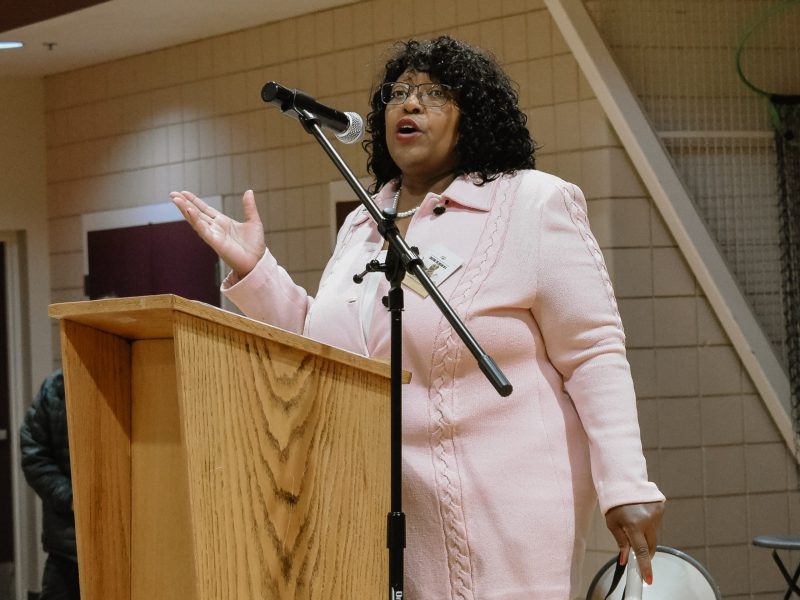Thank you, come again
As retail competition grows in Detroit, customer service is critical, say the folks at Open City, a group formed to share ideas about attaining business success. Matthew Lewis reports from our December speaker series event.

With the holiday season behind us, many us are heaving sighs of relief to be done with holiday shopping. For many, shopping can be painful, though it does not have to be. Customer service can make all the difference between a painful and pleasurable experience.
As Detroit’s retail environment grows and diversifies, the conversation about how the city’s businesses rate in the customer service department is extremely pertinent. Model D‘s Dec. 17 Open City speaker series event at Cliff Bell’s called “Thank You, Come Again” was a great starting point. Vittoria Katanski, Executive Director of Hatch Detroit, moderated a panel of Detroit retailers who shared insights on how the city’s retail establishments can come to be known for great customer service.
For the past several decades, Detroit has been hungry for retail businesses. The opening of a business that might be considered commonplace in other cities is big news here. This hunger, however, may have lowered Detroiters’ customer service expectations. “I really hate to say this, but I’ve had a lot of negative customer service experiences in the city,” Rachel Lutz, owner of the of the Peacock Room and the Emerald stores in Midtown’s Park Shelton said. “Maybe it’s because business owners don’t think they have a lot of competition around here, and I think that they sometimes take their customers for granted.”
As competition grows in Detroit, however, customer service is critical. Simply being open for business isn’t enough any more. “For years store owners didn’t have to provide anything special to customers, and customers didn’t expect it. The climate has changed,” said Karen Brown, proprietor of Savvy Chic, an eclectic boutique in the Eastern Market. Janet Jones of Source Booksellers, whose store has thrived on its reputation for customer service since 1989, told the audience, “Service is the oil that lubricates the business.”
Lutz emphasized the importance of catering to customers’ wants and needs because the experience of shopping is what separates the brick and mortar business from faceless online retailers. “Do whatever your customers want and then some. Amazon doesn’t call you when something special comes in,” she said.
Detroit’s retail scene is dominated by small businesses, distinguishing it from other places abundant with corporate and chain stores. This makes shopping in Detroit a more personalized experience. As Michael Solaka said about his new grocery in Midtown, “We’re not a corporate store. I think, ‘What do I want to buy? What do I want to eat?'” when stocking the store. Jones of the Source agreed. “We buy what we like. We want people to come in and explore and discover. This is a part of customer service.”
Patience is an important component of good customer service. Sales don’t always happen on a customer’s first visit to a store. As Karen Brown said, a good retailer does not judge customers when they walk through the door. “You treat every customer special when they come in. They may not buy something that time, but the next time they will remember the kindness and the customer service that you gave them.”
A good retailer is a curator. Brown’s shop in the Eastern Market, Savvy Chic, is known for its thoughtful merchandising of inventory. In Brown’s eyes, “It is important that you are always telling a story (though merchandising).” A visit to her store is a multi-sensory experience. She tells a story through carefully chosen music, scented candles, and visual displays. Customer service is as much about pleasing environments as it is about personal interactions.
For Michael Solaka, the longtime owner of Northern Lights Lounge in New Center and partner in the newly-opened Ye Olde Butcher Shop in Midtown, staffing and cleanliness are two of the most important elements of successful retailing. As he noted, teaching employees how to read customers’ body language takes time. There isn’t a generic formula for dealing with every customer. As Solaka said, “‘Hi, may I help you sir? What can I get you tonight?’ is not necessarily the first thing people want to hear.”
An interesting question was raised about how businesses deal with the opportunities and pitfalls of social media. After all, a single bad review can tarnish a business’s reputation for a long time. “There are things online about Northern Lights that are five years old about a car window getting broken in the parking lot,” Solaka said.
When promoting their businesses online, the panel agreed that businesses only should offer what they have the capacity to provide. Solaka said social media needs to be used like an IV drip so as not to overwhelm customers with information. “You have to use Facebook to entertain and entice people into the store,” Lutz said. “We remind people of our amenities and make sure our posts are non-intrusive.”
Of course, in the tight-knit retail scene in Detroit, word of mouth is perhaps the most potent form of promotion. “Your customers will advertise for you,” Lutz said.
Matthew Lewis is project editor for this series, which alternates monthly in Model D and sister publication Metromode. Our partner for this project is the Erb Foundation.




